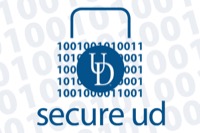DNSChanger virus
Most UD computers should be safe from DNSChanger virus
11:49 a.m., July 6, 2012--Local and national news media are reporting that “thousands” of people could lose their Internet access on Monday, July 9, as a result of the DNSChanger virus.
According to UD Information Technologies, most computers owned by the University or by University employees and students will not be affected.
FYI Stories
June 6: UDid It! Picnic
2FA protects you
“If your computer has UD-supplied McAfee VirusScan protection or an up-to-date subscription to another major anti-virus suite — Norton, for example — your computer should not be affected,” said Beth Miller, IT Client Support and Services.
She added that individuals can check online to see if their computers are affected: “Go to www.dcwg.org, click ‘Detect’ and follow the directions to check your computer.”
DNSChanger affects an infected computer’s ability to use the Internet’s Domain Name System (DNS). The virus redirected an infected computer’s Internet searches to fake DNS servers, ultimately taking an infected computer’s web browser to fraudulent websites.
In November, after arresting the virus’ authors, the FBI took down the fake DNS servers and put up temporary servers to re-route infected computers to authentic DNS servers. As a result, owners of infected computers could safely browse the Web, but would not have known their computers were infected.
On Monday, July 9, the FBI will be turning off its temporary servers.
“Any infected computer that has been reaching the Internet using the FBI’s temporary servers will not be able to use the Internet on Monday,” Miller said. “If the tools at the www.dcwg.org site indicate your computer is one of the very few affected systems, contact your department’s IT staff or the IT Support Center for assistance.”
To download McAfee VirusScan onto a computer owned by UD or a member of the UD community, go to Installing and using McAfee VirusScan.








